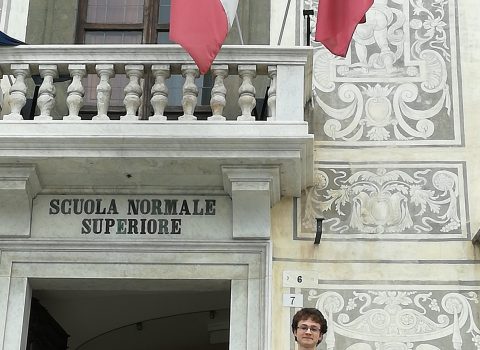
The initiatives of the FBK recreation club
Fondazione Bruno Kessler's recreation club offers a variety of sports, leisure and social initiatives. An excellent opportunity to loosen up the seriousness of working days with colleagues, get to know each other better and - why not? - create new friendships.
For a few years now a new term has been roaming the job market, creeping in among LinkedIn posts, organizational literature and recruiter ads: work-life balance.
In work contexts such as ours, which are increasingly tertiarized and flexible, a model of work organization that rigidly distinguishes work time and leisure time, professional sphere and sphere of family and friends, workplace and home, is becoming less and less common. If these divisions remain, they are certainly much more tenuous.
An example of this trend line, at FBK, is the FBK Recreation Club established in 2014, which offers annual sports, social and corporate welfare initiatives for all members, aimed at making the workplace a more pleasant and leisure-compatible place. Ph.D. students, along with researchers and administrative staff, gather during lunch breaks and after working hours to heal body and soul and forge new relationships and friendships. The sports dimension is rather substantial, with table tennis, 7-a-side soccer and foosball tournaments, and with upcoming this year yoga and postural exercise classes. In addition to sports, there is also room for culture: the FBK book club invites its members to read one book every two months; the book is chosen and discussed collectively; in addition, there is a bookcase for book sharing in the club room.
Alongside regular activities, there are also many other ones throughout the year. Along with those organized by the club’s board, many are suggested by members, and the club supports them logistically and financially: for example, at Christmas time, ADMO (Bone Marrow Donor Association) panettone cakes are offered to members, a tradition that was started on the initiative of an FBK employee who is a member of the association; similarly, Emergency’s Easter dove-shaped cakes dubbed “colomba” are offered for a donation.
Over the years, members have taken courses of various kinds, such as photography, Chinese language, sewing and origami. Another example is out-of-town trips, such as those organized to the Ponte Alto Gorge or other locations in the region.
In addition to the recreational dimension, the club is also involved in various corporate welfare initiatives, small services that make the work experience easier and more enjoyable. A couple of examples? A seasonal tire change service, as well as car wash service, are available in the Povo location garage. In addition, Fbk has created over time a close network of contacts with a number of small, local and otherwise farmers, who deliver their products through the internal buying group: craft beers, fresh vegetables, extra-virgin oil, cookies, honey, and chestnuts that come from these businesses certainly have no place on the shelves of large-scale commercial distribution.
The shelves that have recently been filled with these delicacies, however, are those of the digital supermarket, located on the second floor of the North Building at the Povo hub, where technology and small local distributors can shape a unique and innovative experience.
Some of these activities have been opportunities, for many members, to create and strengthen friendships; Roberto Gretter, senior researcher in the DIGIS Center – SpeechTek unit, for example, has been participating for years in the historic five-a-side soccer tournament that – annually or semi-annually – is held between different Foundation teams: “The tournament is also an opportunity to get to know each other better, outside working hours, with colleagues from one’s own unit or even from different units, who do not see each other often. I have been playing on the same team for years: although it often happens that we change members, over the years we have consolidated a hard core of our own.”

